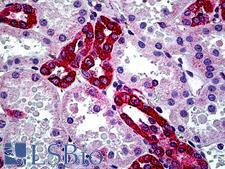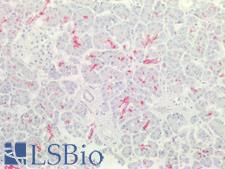Login
Registration enables users to use special features of this website, such as past
order histories, retained contact details for faster checkout, review submissions, and special promotions.
order histories, retained contact details for faster checkout, review submissions, and special promotions.
Forgot password?
Registration enables users to use special features of this website, such as past
order histories, retained contact details for faster checkout, review submissions, and special promotions.
order histories, retained contact details for faster checkout, review submissions, and special promotions.
Quick Order
Products
Antibodies
ELISA and Assay Kits
Research Areas
Infectious Disease
Resources
Purchasing
Reference Material
Contact Us
Location
Corporate Headquarters
Vector Laboratories, Inc.
6737 Mowry Ave
Newark, CA 94560
United States
Telephone Numbers
Customer Service: (800) 227-6666 / (650) 697-3600
Contact Us
Additional Contact Details
Login
Registration enables users to use special features of this website, such as past
order histories, retained contact details for faster checkout, review submissions, and special promotions.
order histories, retained contact details for faster checkout, review submissions, and special promotions.
Forgot password?
Registration enables users to use special features of this website, such as past
order histories, retained contact details for faster checkout, review submissions, and special promotions.
order histories, retained contact details for faster checkout, review submissions, and special promotions.
Quick Order
PathPlusTM CFTR Antibodies
CFTR (Cystic Fibrosis Transmembrane Conductance Regulator), sometimes also referred as ABCC7 (ATP-binding cassette, Subfamily C, Member 7), is a member of the ATP binding cassette (ABC) transporter family. CFTR functions as a chloride channel and controls the regulation of other transport pathways. Homozygous mutations in the CFTR gene cause cystic fibrosis (CF), formerly known as mucoviscidosis, a common hereditary disorder characterized by severe abnormalities in respiratory, digestive and other organ systems. Approximately 70% of the mutations in CF patients correspond to a specific deletion of 3 base pairs, which results in the loss of a phenylalanine at position 508. The approaches aimed to restore the CFTR gene function in CF patients are the subject of intensive research and include the development of gene therapy protocols. In addition to CF syndrome, CFTR mutations were found in patients suffering from bilateral aplasia of the vas deferens (CBAVD). The high frequency of CFTR defects in the human population can be explained by increased resistance to infectious diseases in heterozygous mutation carriers. In immunohistochemistry, CFTR has membranous positivity in pancreatic intercalated ducts, in the salivary gland and in the gallbladder.
References: The UniProt Consortium. Nucleic Acids Res. 47: D506-515 (2019); Nucleic Acids Res. 2016 Jan 4;44(D1):D733-45, PMID:26553804;
2 PathPlusTM Antibodies


☰ Filters
Products
Antibodies
(2)
Type
Primary
(2)
Target
CFTR
(2)
Reactivity
Human
(2)
Bovine
(1)
Monkey
(1)
Sheep
(1)
Application
IHC-P
(2)
WB
(1)
ICC
(1)
IP
(1)
Peptide-ELISA
(1)
Host
mouse
(1)
goat
(1)
Product Group
PathPlus Cancer
(2)
Isotype
IgG1,k
(1)
Clonality
monoclonal mc
(1)
polyclonal pc
(1)
Format
Unconjugated
(2)
Epitope
aa2-14
(1)
aa25-36
(1)
Publications
No
(1)
Yes
(1)

Cancer
CFTR Goat anti-Human Polyclonal (aa2-14) Antibody
Sheep, Bovine, Human, Monkey
IHC-P, Peptide-ELISA
Unconjugated
50 µg/$375

Cancer
CFTR Mouse anti-Human Monoclonal (aa25-36) Antibody
Human
ICC, IHC-P, IP, WB
Unconjugated
100 µg/$485
Viewing 1-2
of 2
product results











